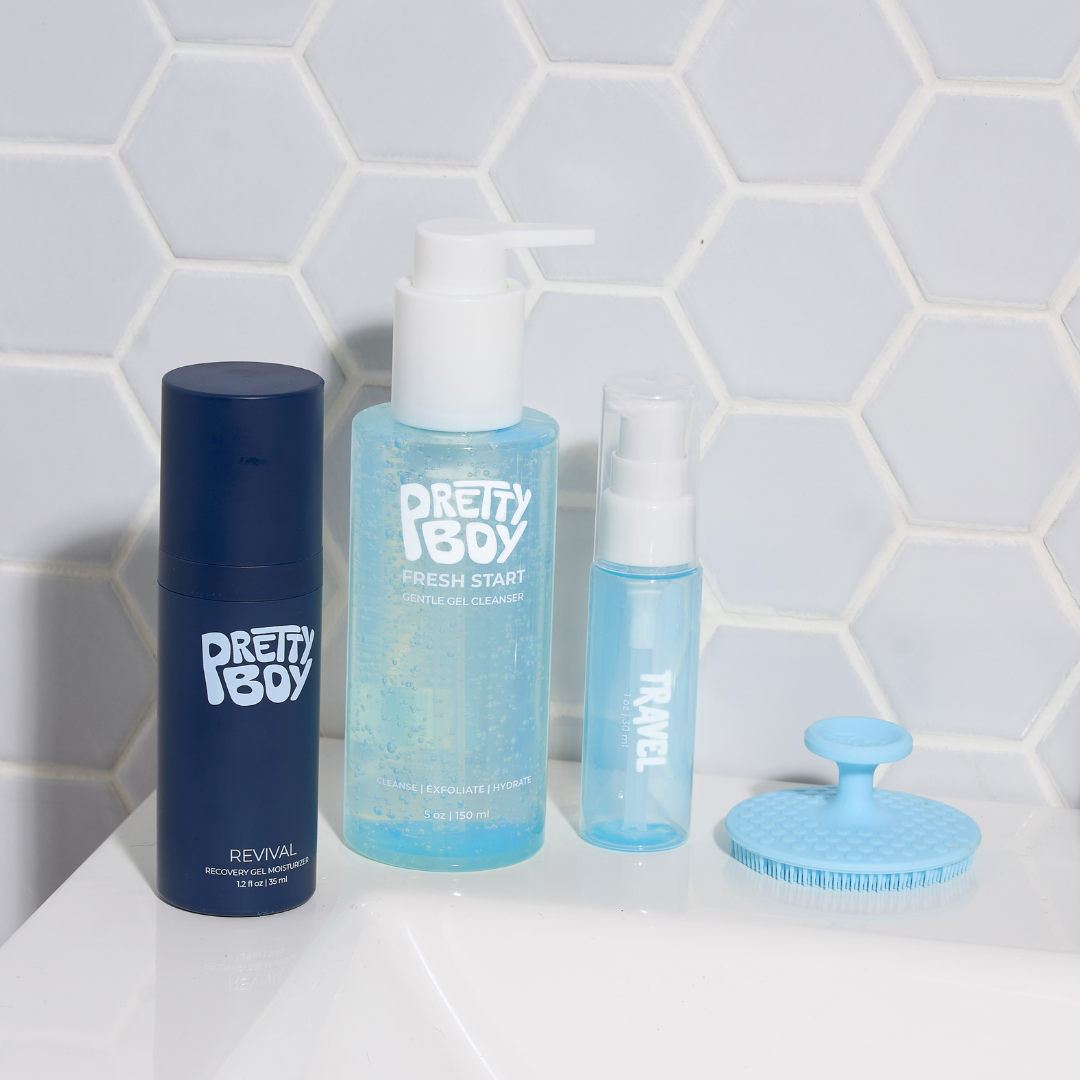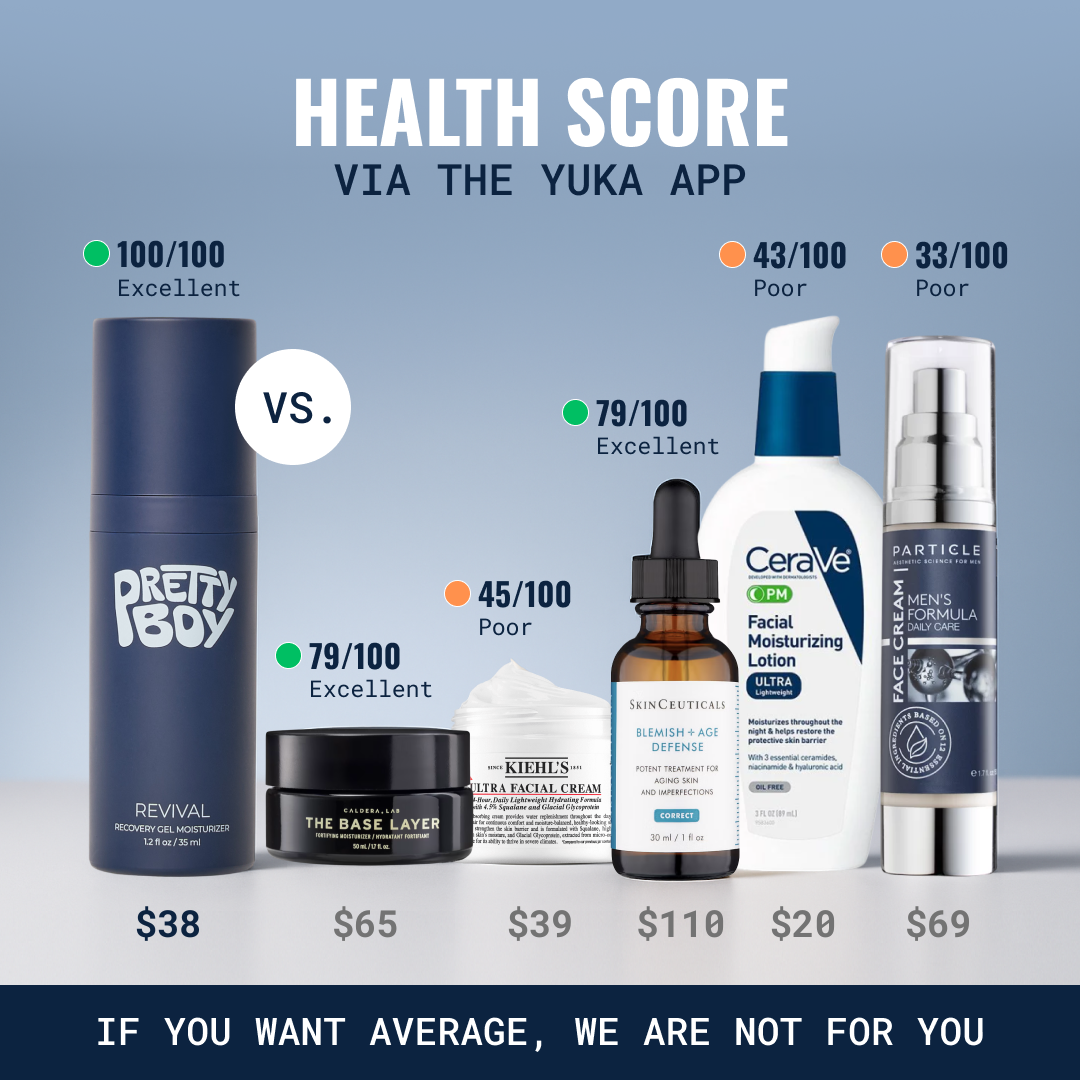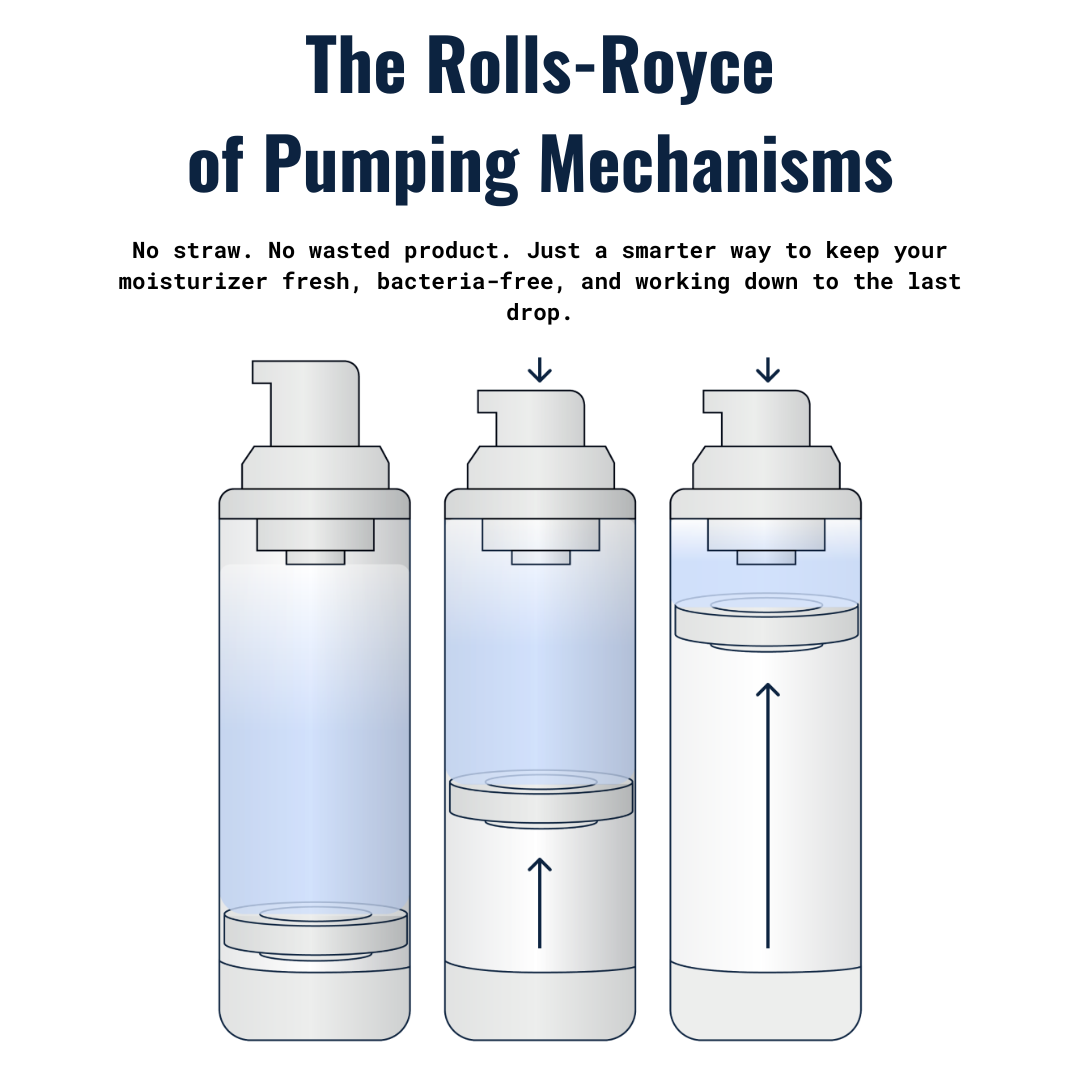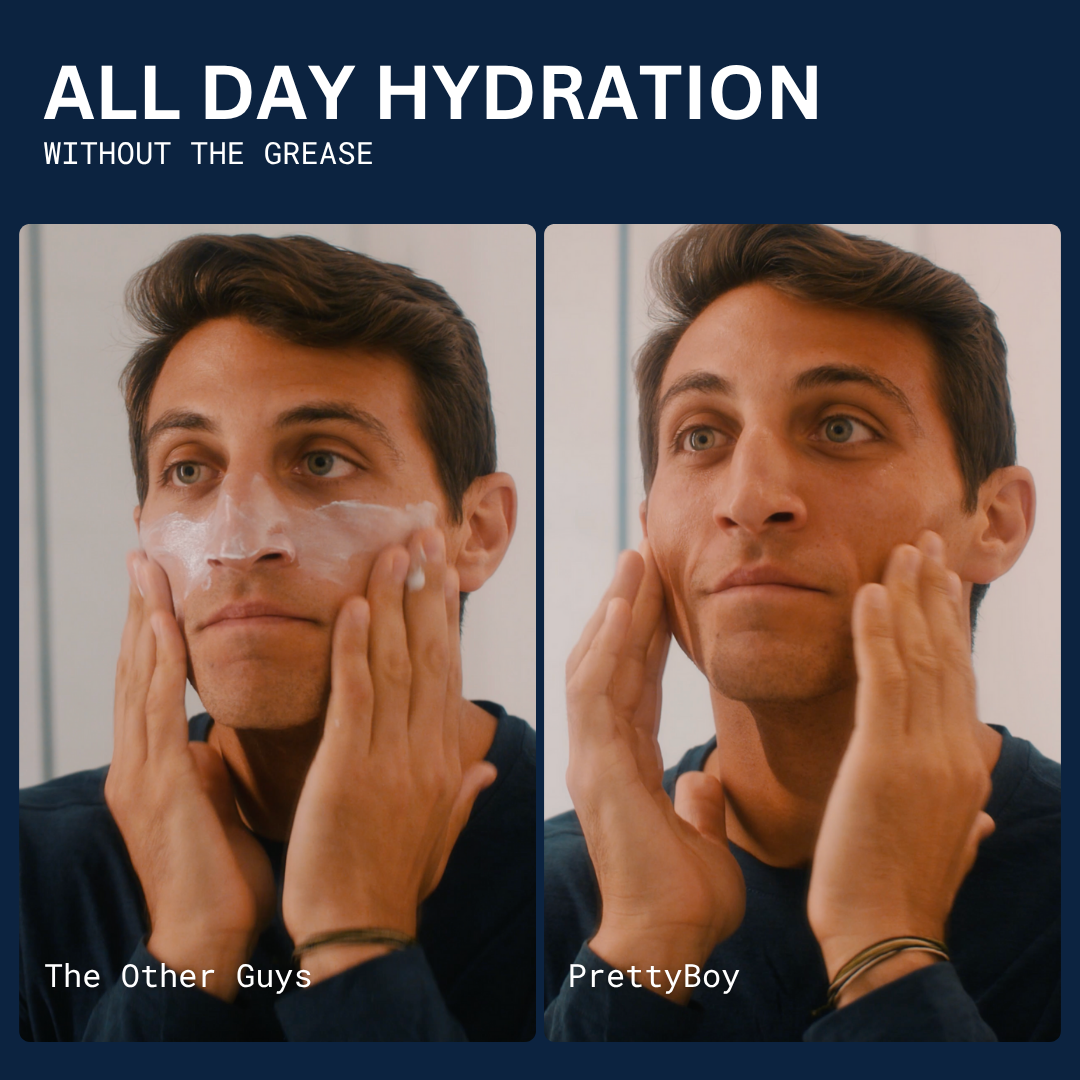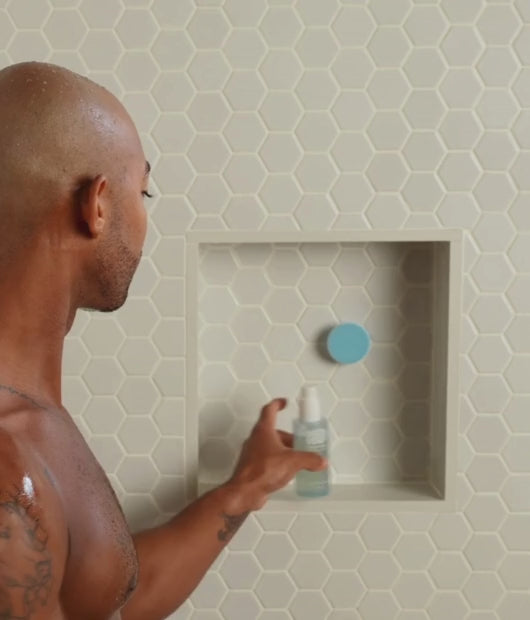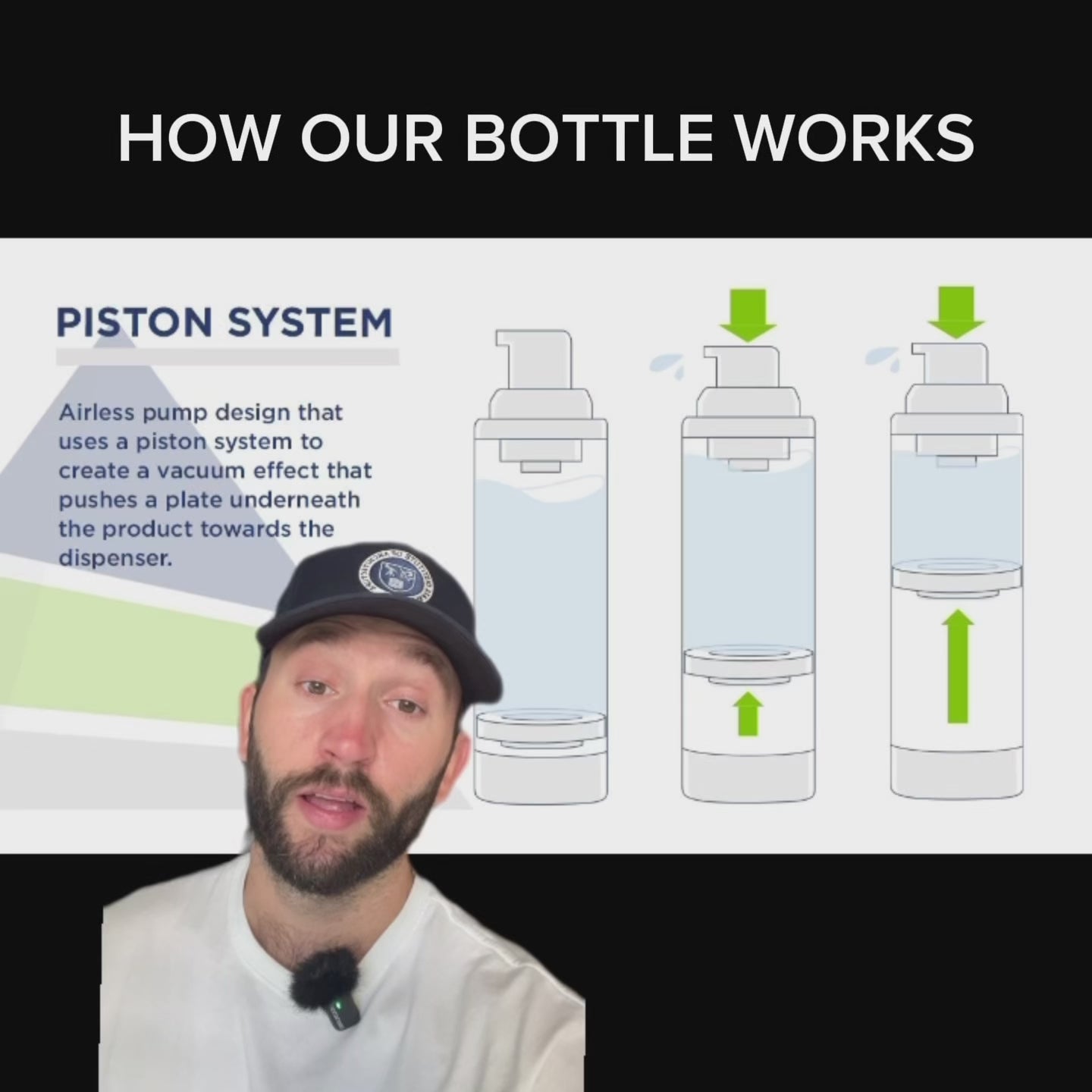TL;DR If you use chemical sunscreen, apply it before your moisturizer. However, if you use a physical or mineral sunscreen, apply it after your moisturizer—ideally after waiting 5-10 minutes.
Are you applying your sunscreen (Opens in a new window) (Opens in a new window) before or after moisturizing? It's a common skincare question that often leads to confusion. The order in which you apply these two essential products can significantly impact their effectiveness and lead to sun damage.
In this article, we will clear up the confusion and provide you with the correct approach to ensure maximum sun protection and a proper skincare routine (Opens in a new window) (Opens in a new window). So, let's dive in and discover the right way to apply sunscreen and moisturizer for healthy and radiant skin.
Should You Apply Sunscreen Before or After Moisturizer?
Applying a moisturizer before or after you apply your sunscreen all depends on the type of sunscreen you use—chemical or physical.
If you use a chemical sunscreen, it’s recommended to apply it before you apply your moisturizer. Chemical sunscreens are a protective barrier and work by absorbing and neutralizing harmful ultraviolet (UV) radiation from the sun. When applied directly to clean skin, the sunscreen forms a protective barrier on the surface, which helps to shield the skin from the damaging effects of UV rays. Sunscreens are most effective when they are in direct contact with the skin. By applying the chemical sunscreen first, you ensure that it comes into direct contact with your skin and can form a uniform layer. This allows the active ingredients in the sunscreen to work optimally in absorbing and scattering UV rays.
When it comes to physical sunscreen (AKA mineral sunscreen) apply it after your moisturizer, ideally after waiting 5 to 10 minutes. This allows the moisturizer to fully absorb into your skin, ensuring that the sunscreen can form a proper protective barrier.
Moisturizers are designed to hydrate and nourish the skin. They contain ingredients that help to replenish and lock in moisture, providing hydration and improving the skin's overall health. By applying moisturizer before a physical sunscreen, you ensure that your skin is adequately hydrated and prepped for the protective barrier.
Moisturizers often contain emollients and occlusives that help to create a barrier on the skin's surface. This barrier helps to retain moisture, prevent water loss, and protect the skin from external irritants. By applying moisturizer first, you establish a protective layer that acts as a buffer between your skin and the potentially drying effects of mineral sunscreen.
Mineral sunscreens typically have thicker formulations due to the presence of mineral filters like zinc oxide or titanium dioxide. Mineral sunscreens, especially those with higher concentrations of zinc oxide, have the potential to leave a white cast on the skin.
By applying moisturizer first, you can help minimize the appearance of the white cast. The moisturizer creates a layer between the sunscreen and the skin, reducing the direct contact and allowing for better blending and absorption.
Benefits of Using a Moisturizer with Sunscreen
Using a moisturizer with sunscreen offers three main benefits.
1. Simplified Skincare Routine
Combining moisturizer and sunscreen into a single product allows you to streamline your skincare routine. It saves time and effort by eliminating the need for separate applications of moisturizer and sunscreen. This can be particularly beneficial for those with busy schedules or who prefer a minimalistic approach to skincare.
2. Hydration and Nourishment
Moisturizers with sunscreen provide the dual benefit of hydrating and nourishing the skin while offering sun protection. They typically contain ingredients like humectants and emollients that help to replenish moisture and improve the skin's barrier function. This helps to keep the skin hydrated, supple, and less prone to dryness or irritation caused by environmental factors.
3. Broad-Spectrum Sun Protection
Moisturizers with sunscreen typically provide broad-spectrum protection, meaning they shield the skin from both UVA and UVB rays. UVA rays can prematurely age the skin and contribute to wrinkles, while UVB rays are responsible for sunburns. By using a moisturizer with sunscreen, you ensure that your skin is shielded from both types of damaging UV radiation, reducing the risk of sunburn, photoaging, and the development of skin cancers.
What Type of Sunscreen Is Best for Your Face?
When choosing a sunscreen (Opens in a new window) (Opens in a new window) specifically for your face, it's important to consider your skin type, any specific concerns you have, and your personal preferences. Here are some factors to consider when selecting the best sunscreen for your face:
- Broad-spectrum protection: Look for a sunscreen that provides broad-spectrum protection, which means it protects against both UVA and UVB rays. UVA rays can lead to premature aging and skin damage, while UVB rays are responsible for sunburns.
- Sun Protection Factor (SPF): Choose a sunscreen with an SPF of 30 or higher. The SPF indicates the level of protection against UVB rays. SPF 30 filters out about 97% of UVB rays, while higher SPFs provide slightly more protection. However, it's important to note that no sunscreen can block 100% of UV rays.
- Non-comedogenic: If you have acne-prone or oily skin, opt for a non-comedogenic sunscreen. These formulations are less likely to clog pores or cause breakouts.
- Lightweight and fast-absorbing: Sunscreens designed for the face are often formulated to be lightweight and quickly absorbed into the skin. These are preferable for everyday use and for applying makeup on top.
- Fragrance-free: Fragrances in skincare products can sometimes cause irritation, so choosing a fragrance-free sunscreen may be beneficial, particularly if you have sensitive skin.
- Additional skin benefits: Some facial sunscreens offer additional skincare benefits, such as moisturizing properties such as hyaluronic acid, antioxidants, or anti-aging ingredients like vitamin C or niacinamide (Opens in a new window) (Opens in a new window). Consider these features if you have specific skin concerns.
- Water-resistant: If you plan to be in the water or sweat a lot, choose a water-resistant sunscreen to ensure better protection.
Remember, it's crucial to apply sunscreen generously and reapply every two hours or after swimming or sweating. Additionally, sun protection should not rely solely on sunscreen; wearing protective clothing, a wide-brimmed hat, and sunglasses, and seeking shade during peak sun hours are also important measures to protect your face from the sun's harmful rays.
What Type of Moisturizer Works Best With Sunscreen?
When using sunscreen, it's important to choose a moisturizer that complements its effectiveness and doesn't interfere with its sun protection capabilities. Here are a few factors to consider when selecting a moisturizer to use with sunscreen:
- Lightweight formulas: Opt for moisturizers like PrettyBoy (Opens in a new window) (Opens in a new window) that have a lightweight, non-greasy texture. Heavy or oily moisturizers may make it difficult for the sunscreen to adhere properly to your skin or may cause it to rub off more easily.
- Non-comedogenic: Look for moisturizers labeled as non-comedogenic, which means they are formulated to minimize clogging of the pores. This is especially important if you have oily or acne-prone skin, as clogged pores can lead to breakouts.
- Fragrance-free: Some moisturizers contain fragrances that can potentially irritate the skin or cause allergies. It's generally a good idea to choose fragrance-free (Opens in a new window) (Opens in a new window) products, particularly if you have sensitive skin.
- Broad-spectrum protection: If your moisturizer includes sun protection, ensure it offers broad-spectrum protection against both UVA and UVB rays. This will provide you with comprehensive coverage against the sun's harmful effects.
Alternatively, you can use a separate sunscreen product and apply it after moisturizing your skin. In this case, select a moisturizer that works well with your skin type and addresses any specific concerns you may have, such as dryness or aging.
Remember to follow the instructions on the sunscreen product you choose, including the recommended amount to apply and the frequency of reapplication, to ensure you receive adequate sun protection.




